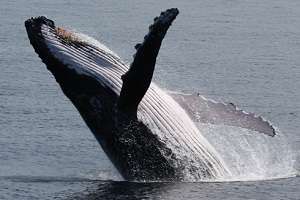Solid data to ensue from citizen app platform

The burgeoning 'citizen science' movement could be enlisted to survey wildlife right around the world, thanks to a new app designed by a team at Murdoch University.
The free smartphone app, called Coastal Walkabout, allows members of the public to add wildlife photographs to a global database, with the aim of helping scientists keep tabs on issues such as the cane toad invasion of northern WA.
Photographs are automatically tagged with the time, date and GPS location, allowing scientists or conservation groups to build up a record of sightings of a particular species.
"The whole concept started in north-west WA. But we've developed the concept in a way so that it can be used anywhere, not only in Australia but internationally," says Murdoch University researcher Lars Bedjer.
Citizen science is not a new concept. US birdwatchers, for instance, are regularly enlisted to survey America's bird populations. And on the technological side, members of the public can pledge their spare computing power to process radio astronomy data.
But the new app will act as a versatile platform for all kinds of different projects, its developers say.
The photographs will all go into a universal database that can be used for a wide range of purposes, such as logging sightings of rare species, or monitoring fuel loads in bushfire-prone areas.
The Murdoch University team will sort and classify the photographs, at least initially. But the actual ecological research will be done by others.
"The point is that we're not doing all of these projects ourselves—we're developing the tool so that people or organisations can do those projects themselves," Dr Bedjer says.
The team has added features to the app that will give academic researchers the high-quality information needed for peer-reviewed research.
One of the app's features allows users to log their position every minute while moving through the area being surveyed. That would help researchers calculate measures such as population density and encounter rates, which are useful for ecological surveys of rare species, Dr Bedjer says.
Fellow team member David Johnston says the idea is to create a versatile database that can be used for different projects, rather than a single project that tails off after an initial burst of enthusiasm from users.
"We're trying to avoid the idea of creating the eternal science project. We know from previous projects that it doesn't work that way," Dr Johnston says.
"Instead what we are encouraging people to do is choose and develop projects that have very specific goals and very specific end-points. That essentially turns a long, drudging process into a short, competitive, exciting endeavour."
More information: The app works on Apple and Android smartphones, and is available from the App Store and Google Play.
Provided by Science Network WA




















